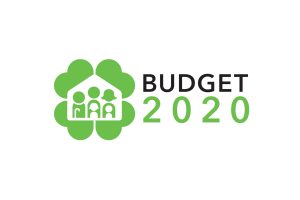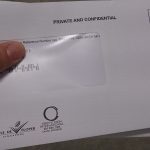Business stability and livelihoods support measures taken by Government in Covid-19 Circuit Breaker Extension Period. Jobs Support Scheme at 75% in May, now covers shareholder-directors
Foreign Worker Levy Waiver and Rebate extended by one month. Applications for COVID-19 Support Grant starts from 1 May 2020.
On 21 April 2020, the Multi-Ministry Taskforce announced that it would extend the circuit breaker period until 1 Jun 2020 (inclusive), and put in place enhanced circuit breaker measures minimally for a two-week period from 21 April 2020 until 4 May 2020 (inclusive). The Government will continue to support our people and sustain business stability through the extended circuit breaker period, building on the measures introduced in the Unity, Resilience, and Solidarity Budgets since 18 February 2020.

Supporting Workers and Considering Business Stability
Jobs Support Scheme wage subsidy remains at 75% for all sectors for May 2020
In the Solidarity Budget, the JSS was raised to provide 75% wage support on the first $4600 of gross monthly wages for local employees across all sectors for the month of April 2020. The Government will extend the 75% JSS across all sectors for another month, i.e. in the month of May 2020. This enhanced payout for May 2020 will be disbursed by end-May 2020 for employers on PayNow or having existing GIRO arrangements with IRAS. Other employers will start receiving their cheques in early-June. The Government said that it encourages all employers to sign up for PayNow to receive their payouts faster.
Similar to the arrangement for April, the 75% subsidy for May 2020 will first be computed and disbursed based on November 2019 wages, thereby ensuring speedy disbursement. Subsequently, the Government will adjust future JSS payouts to account for actual wages paid in May 2020, relative to November 2019.
As part of the Government’s efforts to save jobs and support wages with timely disbursement, the additional JSS subsidy (75% across all sectors in May) will be computed using November 2019 wages as a proxy. Actual subsidy will be determined later based on the wages paid in May 2020. This means that employers who do not pay wages in May 2020, or who place employees on mandatory no-pay leave in the month of May will not benefit from the 75% subsidy.
JSS payouts are intended to offset and protect local employees’ wages. Employers must act responsibly and fairly, taking reference from the tripartite advisory on salary and leave arrangements during the circuit breaker period. Employers who put local employees on mandatory no-pay-leave or retrench them will not be entitled to the enhanced JSS payout for those employees.
JSS to cover shareholder-directors
The Government will also extend the Jobs Support Scheme payout, to cover wages of employees of a company who are also shareholders and directors of the company (shareholder-directors). For companies limited by guarantee, this applies to employees who are both members and directors of the company and as defined in Section 4(1) of the Companies Act.
This support will only apply to companies that were registered on or before 20 April 2020, and for the wages of shareholder-directors with Assessable Income of $100,000 or less for Year of Assessment 2019. This is expected to benefit about 50,000 shareholder-directors. The May 2020 and subsequent JSS payouts will include support for qualifying shareholder-directors. The May 2020 payout will also include back-payment for companies with qualifying shareholder-directors whose wages were excluded from the first JSS payout in April 2020.
Foreign Worker Levy Waiver and Rebate extended by 1 month in considering Business Stability
The Government will extend the Foreign Worker Levy (FWL) waiver and FWL rebate by one month, to ease labour costs of firms that employ foreign workers in this period. As with the initial introduction of the waiver and rebate, this assistance will support firms with workers who are unable to work due to the circuit breaker and/or Stay Home Notice (SHN) measures. Firms should use the assistance for their workers’ wages and subsistence needs. MOM will provide further details.
Previously Announced Support for Business Stability and Relief Measures Will Continue to Apply
Support for Self-Employed Persons (SEPs)
As announced in the Resilience Budget, SEPs with less means and family support will receive the Government’s assistance through the SEP Income Relief Scheme (SIRS) until December 2020. Eligible SEPs will automatically receive three quarterly cash payments of $3,000 each in end-May, July and October 2020. SEPs who narrowly miss the eligibility criteria can submit their appeals to NTUC from 27 April 2020.
Solidarity Payment for adult Singaporeans
About 90% of adult Singaporeans received the Solidarity Payment of $600 through direct bank transfer on 14 April 2020. The rest will be receiving this payment through their recently registered bank accounts on 28 April 2020, or by cheque from 30 April 2020 onwards. The remaining Enhanced Care and Support – Cash will be paid out from end-June 2020, together with the $300 for each parent of a Singaporean child aged 20 and below in 2020, and $100 cash for Singaporeans aged 50 and above in 2020 (replacing the PAssion Card top-up).
Temporary Relief Fund and COVID-19 Support Grant for lower- to middle- income Singaporeans
Lower- to middle-income Singaporeans who require urgent help with their basic living expenses can apply for the Temporary Relief Fund which provides a one-off cash grant of $500 in April. From 1 May 2020 onwards, Singaporeans who are unemployed due to COVID-19 can apply for the COVID-19 Support Grant, which provides a cash grant of $800 a month for three months. MSF will provide more details on how to apply soon.
The circuit breaker to choke off the spread of the coronavirus will be extended by another month to June 1, and existing measures will be tightened until May 4, said Prime Minister Lee Hsien Loong in his fourth national address on the situation on April 21st.





